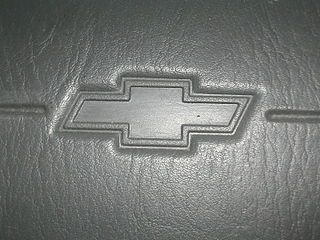What About the Big Divorce — Between Big Auto and Big Energy?
Sometimes we hear calls for presidential mandates or other forms of governmental intervention from the least likely sources. For example, I would have bet that General Motors Chairman and CEO Daniel Akerson would have thought the private sector and the free market was more than capable of working out the correct mix of transportation fuels. I would have wagered that Mr. Akerson and his $11.1 million annual compensation plan would have been at the top of the list of voices decrying government’s “picking winners” in the marketplace.
Apparently, I would have lost that one. According to this article, Akerson believes the government should take control of the situation and encourage natural gas refueling stations.
“Why can’t we get natural gas refueling stations at one out of four gasoline stations?” He added, “If you really want to take advantage of a gift, you have to change your infrastructure.” Akerson explained that he would like to see a presidential mandate that would develop and integrate an energy plan, seemingly one that would include some sort of incentive for these refueling stations.
When I come across paradoxical stuff like this, I often wonder: OK, but why fossil fuels? If the government is going to favor a certain energy/transportation technology, what’s the matter with electric vehicles powered by wind or solar? Personally, I have no problem with the concept of government’s supporting technologies in pursuit of a social good, like a low-carbon versus carbon-intensive future. But why use tax-payer money to drive “more of the same?”
Evidently, the Big Divorce (i.e., the break-up between Big Auto and Big Energy) didn’t happen as some people may have thought.


A bribed government had certainly ‘picked and chose’ when it allowed oilman Rockefeller to manipulate and support Prohibition, so that it outlawed not only the sale of ethanol as an intoxicant (beer, wine and liquor), but also the industrial production of ethanol as a fuel for vehicles. This is not a new phenomenon, and it continues today. As a result of the way our “public servants” gain office, they have traditionally picked “winners” who are possessed of extreme financial influence, but not necessarily of the best ideas. Edison and Tesla come to mind, but there is a plethora of examples across our national history and in the present day.
If we are to shift our society from fossil sunlight to modern sunlight, the change that must occur is the fierce prohibition of all forms of bribery within our presently pocketed government, and the leveling of the political playing field in terms of media access. That will potently facilitate the replacement of our corrupt politicians with genuine servants of the whole public. Along with that primary necessity, the triumph of empirical science and holistic accounting in our decision-making is of paramount importance.
This is a somewhat complex matter and I don’t know to what extent the government should be involved.
Engines running on natural gas (methane) emit considerably less CO2 than engines running on gasoline or Diesel fuel. However, they still do emit considerable CO2. It may be that until vehicles that operate on Diesel fuel or gasoline can be replaced with vehicles that emit zero CO2, a case could be made for temporarily encouraging the use of natural gas to power vehicles.